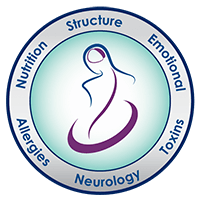
Evaluating somebody who is primarily complaining of, or concerned about their fatigue begins with our first step in the clinic, and that is a detailed questionnaire. We look at the different areas or systems in the body with what we call a metabolic assessment form. The metabolic assessment form is a detailed questionnaire that asks questions, section by section, about each area in the body. Questions could be related to digestion, or they could be related to blood sugar balancing, endocrine, hormones. The questionnaire is really a key way to start finding out the root cause or causes of somebody’s fatigue. Then, we ask a series of detailed questions and get the patient history, including finding out what kind of diet the patient is eating.
The next step beyond that would be going through and identifying how the patient is waking up in the morning, how they are sleeping during the night. Dietary associations, again, are very important.
The third step, after going through those portions is then evaluating blood work and functional tests. The blood work may reveal something as basic as being anemic. If a patient is experiencing anemia, he or she is definitely going to be having fatigue. If a patient is experiencing blood sugar dysregulation, they are definitely going to experience fatigue.
When we do testing such as an adrenal stress index (where we can look at how your cortisol levels are), one common finding is elevated cortisol levels during the evening when you are supposed to be sleeping. That should be the time when your cortisol levels are at your lowest; since you are asleep, you should have lower stress response than during the day. And so, if your cortisol levels are elevated, you are going to have very poor sleep. Typically, those are also going to be associated with other factors that are going to relate to your fatigue during the day.
So, these are very key steps in finding out why somebody is fatigued. Additionally, with regard to that, we can’t skip over looking at thyroid function. Thyroid function, essentially with regard to the T3-T4 hormones from the thyroid (T3 being the primary hormone pushing into the cells to drive those to produce energy) can be an important factor in diagnosing fatigue. If your thyroid is off, either hormone-wise or what we call thyroid hormone metabolism, then that is going to change the way the hormones are produced and where they are being able to be utilized or brought into the cell to produce energy.
So those are the key steps that I look at in terms of finding the root cause in someone’s fatigue. And The root cause” is a term that I use frequently. Many times, if somebody is having fatigue, they might do things that only treat the symptom. Just saying, “Here, have some caffeine. Have a caffeinated drink. Drink some coffee.” There are things that you can do to try to boost up the fatigue, but finding the root cause is really where the most success happens in the short term, and in the long term as far as making life-changing care with somebody.
Dr. Greg Olsen at Olsen Chiropractic, APC can be reached at (949) 859-5192 and is located at 22691 Lambert St. #503, Lake Forest, CA 92630.
Click here to receive more information & to schedule your appointment.

